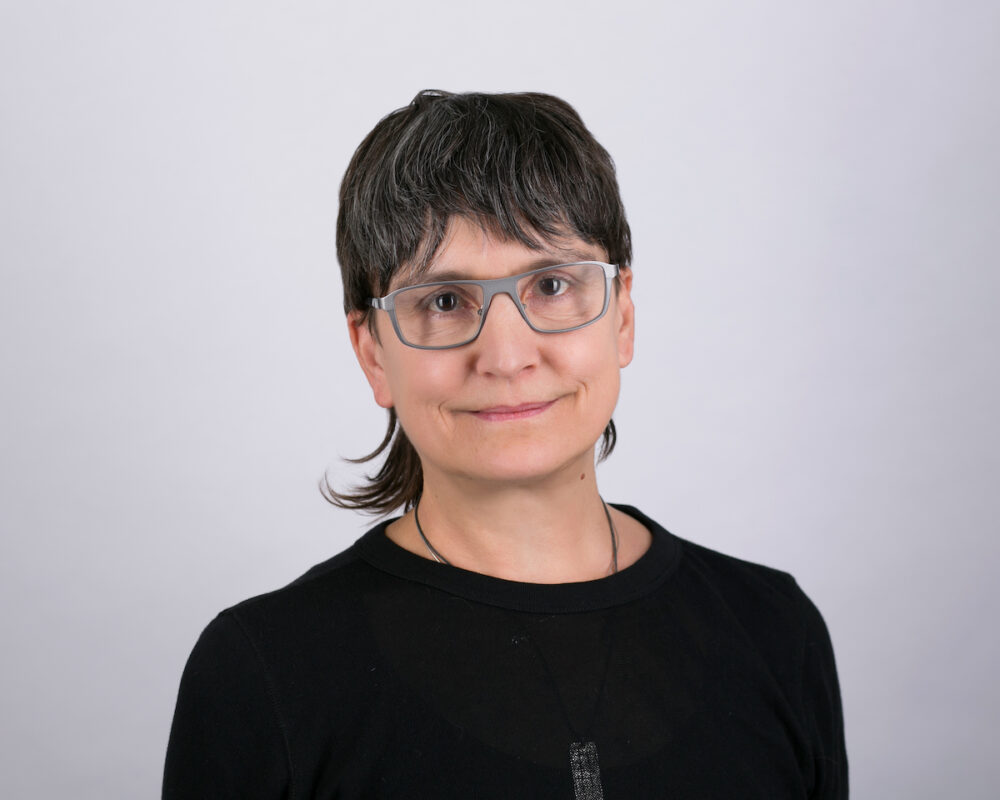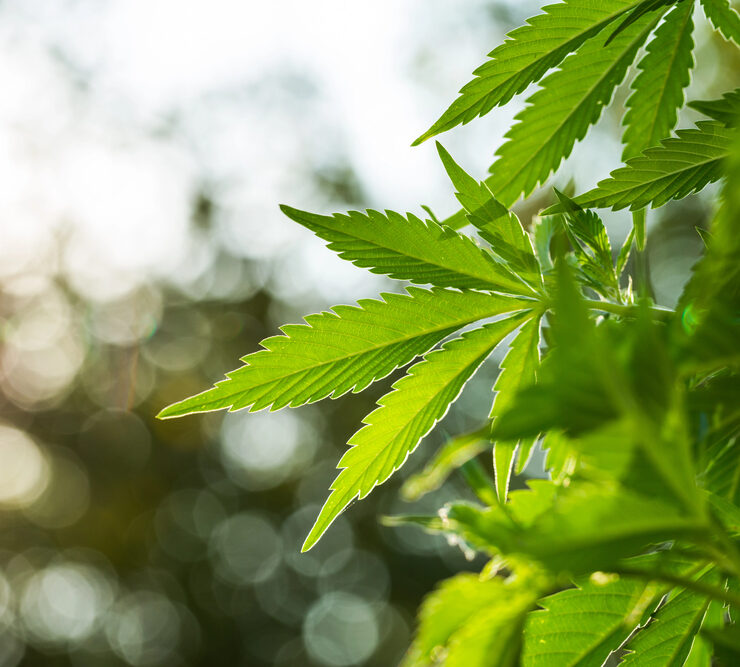Restaurateur Louise Palmer-Masterton Talks Queerness, Veganism, and Sustainability

Keegan (they/them) is a journalist/artist based in Los Angeles.
Louise Palmer-Masterton is a prime example of creating a meaningful and substantial idea from scratch, while raising awareness within the business field among the nonbinary community.
Palmer-Masterton is a nonbinary chef and restaurateur, securing the title of Businessperson of the Year at the Cambridge 2022 SME Awards through the success of their vegan restaurant, bar, and brand, Stem & Glory. It’s also the U.K.’s first carbon-negative restaurant, using 100% renewable energy within their establishment.
OFM had the opportunity to chat more with Palmer-Masterton about their restaurant’s new location and cookbook, Stem & Glory Classic Recipes, embracing the health and environmental benefits of plant-based cuisine, and navigating the food world as a nonbinary business owner.
Hi Louise! I know it’s already been a wild year for you, in getting your third restaurant open and releasing your cookbook. Can you give us an update of what you’re working on right now and how 2022 is playing out?
We have just closed our latest crowdfund on Crowdcube and are about to land the funds from that, which means we will be on site building our third site very soon. The new site is at Broadgate Circle, and will be our biggest project to date, and will be open in the summer. We have already got our sights on locations four and five and have been viewing a few possible options. We are also launching our supermarket ready meals range this year.
Can you tell me more about the Stem & Glory cookbook? What were your aims in releasing the cookbook, and how has the reception been? I also see it’s a limited run—Do you plan on selling more if they sell out, or potentially releasing Stem & Glory cookbooks in the future?
The book is in response to the Stem & Glory FAQ number one—”Where can I get the recipe for those awesome crackers from (our very legendary, multi-seed crackers that we have served in our restaurant since the start)?” We also frequently get asked when we are writing our recipe book, so this first book contains all our best-selling classics since the start. We are already working on our second book, Low Carbon Cuisine, which will be a much deeper dive into British-grown produce including seeds, grains, peas, beans, pulses, and of course vegetables.
I want to talk a little more about your work with U.K. agriculture, specifically centering foods and menu items that make the most of home-grown food and giving back to farmers. Can you tell me more about your work in that regard and how the two are connected?
There is a lot wrong with U.K. agriculture right now, in particular with regard to soil health. Organic farmers farm regeneratively, and there is a lot to learn from them. For example,
leguminous crops grown on rotation build natural fertility into the soil, in turn enabling growth of non-leguminous crops—So much knowledge of this harmonious cycle has been lost due to the market driving down cost and the increased use of chemicals, and it’s had devastating consequences to the fertility of our soil.
Add to that the huge amount of crops that are grown for animal feed, and it’s become quite a large problem to fix. Regenerative farming is, however, becoming a trend that will hopefully accelerate in the coming years, so in spite of everything, I am optimistic about the future. Over the years, we lost touch with a lot of crops that used to be grown in the U.K., like ancient grains and a wide variety of dried peas. Fortunately, this is making a comeback now, and businesses like Hodmedods are driving this forward. They not only work with farmers to grow these crops regeneratively, they also do so equitably, so no one in the chain is squeezed.
I see our part in this cycle very much part of an education piece around this. Many of these British grown crops are unknown from a culinary perspective, so using these products in our restaurants is a great place to start. I also personally love cooking with these. We use lentils grown in a field not far from where I live, and I am a big fan of the humble yellow pea which is an amazingly nutritious alternative to chickpeas that grows fantastically well in the U.K.
Many fake meat products are made from processed “pea protein.” In my view it is far better to eat the humble pea in its natural state. We actually have a yellow pea hummus recipe in our first cookbook.
I also know that right now the U.K.’s hospitality industry, and the vegan sector, are suffering due to COVID. What has your experience been in this regard, and do you see this changing? Is there anything that restaurateurs and consumers can do in this regard?
I could write a whole book on our experience navigating COVID! We’ve actually fared very well throughout. The enforced closure, whilst shocking and unexpected, brought about many long-term benefits. We had time to get very forensic with our business, and we have emerged far more lean and efficient. We’ve also been offered significant opportunities coming out of the closures. The worst of it was last December, really, when there was a lockdown in all but name, when everyone decided to stay home. Hospitality lost all of its Christmas bookings overnight, which was pretty devastating.
I suppose my message to consumers would be to always support the businesses that you love, especially the independent ones. What happened last December was literally all in the minds of people, and that’s something you literally cannot safeguard against. We took the decision to stay open anyway and that turned out to be a good call; businesses that shut down to save costs had a tougher ride getting back open again. We’ve continued to get busier and busier this year.
Attitudes are surely shifting around vegan food, so I’m curious what your experience has been working in that sector through your career to today. Do you find more folks, even non-vegans, are starting to embrace plant-based diets, especially in regard to the environmental and health benefits that come with?
I think it’s still very mixed, to be honest. Definitely more and more people are eating less meat and dairy, but as with everything where humans are involved, it’s still very polarized. With the rise of vegans and vegan food has come a rise of people defending their rights to eat flesh!
I read somewhere that in the first lockdown there was a record rise in the sales of plant-based products in the supermarkets, and there was a record rise in sales of meat. I think over time the plant-based movement will win, though. The environmental reasons to eat less meat and dairy are increasingly compelling now and will become impossible to ignore in the future. Our customers would probably largely define as “Flexitarian,” so we have definitely seen evidence of this shift.
Along with some of the conversations around environmentalism and going plant-based, I’m curious if you have any additional perspective on plant-based foods in regard to health and wellness?
I’ve always believed in treading lightly upon our planet, and eating foods that are grown around us is a big part of that for me. I was exposed to the principles of macrobiotic foods at a young age, and it has always made perfect sense to me. The idea that nature provides the most nutritious food you need to thrive in the climate around you feels very logical to me, especially with regard to seasonal crops and vegetables.
Plant-based wholefoods are easy to metabolize and are gentle on the body. The key word here, though, is wholefoods—Plant-based, processed food may be kinder on the planet, but in terms of wellness, it has to be wholefood and plant-based.
To shift gears a bit, I wanted to talk a little bit more about your experience being a nonbinary person in the culinary industry. What’s that been like for you?
My nonbinary status has everything to do with the socially constructed nature of gender which I have spent my entire life railing against. I’ve never identified with a binary gender, so it’s been something of a huge relief to discover myself as nonbinary. Hospitality is a very binary, gendered place, so all I can do is set a different type of example.
The socially constructed nature of gender is the beginning of all inequality, but it literally exists only in the mind. I think there is potentially a danger with labels, such as nonbinary also leading to inequality, so my preference would be to just do away with gender labeling completely. People are people, it’s only society that labels difference. I have two teenage children who identify as nonbinary, as do most of their friends; they are definitely moving away from gender, and they all also identify as queer.
This is the future, I believe. The next big “ism” to conquer, by the way, will, I believe, be ageism.
Do you feel like some of these conversations work together in any way, being in the LGBTQ community, the social conversations that come with our experience, and some of those other conversations that also involve activism in the realm of health, environmentalism, and sustainability?
That’s an interesting question that I have not really ever considered, but yes, thinking about it, they definitely do work together. I guess I’ve spent my entire life immersed in these conversations, they are so completely normalized I don’t even think about them as activism. I like the idea of activism through delicious food, though.
For folks who might want to embrace veganism or a diet that helps their health and to reduce their footprint, but maybe don’t know where to start, what would you say to them?
Some people like myself have a sudden blinding realization and become vegan on the spot, but for most people it’s a more gradual process. So, just start with a couple of days a week, and see how it goes. Like with smoking, never give up giving up! It takes time to change habits, so don’t beat yourself up if you lapse.
It’s going to be easier if you like cooking, and even better if you love lentils, beans, nuts, seeds, and a wild array of vegetables, but honestly, there has never been a better time to try and go vegan. It’s easy to access vegan meals almost everywhere now, and food in the supermarkets is well labeled. If you want to do the whole journey towards wholefood plant-based, then this will most likely require you to slow down. It’s convenience that drives processed and packaged foods, and in such a time-pressed society, it’s easy to default to unhealthy grab and go.
Building some time into your schedule for making your own lunch and cooking from scratch does require a change in your schedule, but it really doesn’t need to be onerous. Take small steps, one at a time.

For more from Louise Palmer-Masterton and Stem & Glory, find them on Facebook, Twitter, and Instagram @stemandglory. Stem & Glory Classic Recipes is available for a limited run on the restaurant website at stemandglory.uk/merch.
Photos Courtesy of Stem & Glory
What's Your Reaction?
Keegan (they/them) is a journalist/artist based in Los Angeles.






